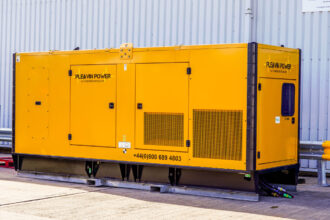Tech-Driven Innovations for Successful Corporate Events


Table of Contents
Table of Contents
- Introduction to Event Technology
- Streamlined Registration Tools
- Enhancing Engagement with Interactive Tech
- Virtual Event Platforms
- The Importance of Event Analytics
- Sustainability through Technology
- Future Trends in Event Technology
Introduction to Event Technology
In today’s fast-paced corporate sphere, technology serves as a linchpin, fundamentally transforming the traditional methodologies employed in planning and executing events. A key outcome of this transformation has been the advent of innovative tools that streamline logistical operations and significantly enhance the attendee experience, creating a more connected and immersive atmosphere.
Professionals, particularly corporate event planners, harness these technological advancements to craft seamless and engaging events. Utilizing modern tech solutions is crucial in converting complex strategies into more efficient and manageable processes, setting the stage for successful gatherings.
Streamlined Registration Tools
The registration process is often the initial interaction attendees have with any event, making it a critical aspect that demands attention. Advanced digital platforms like online registration tools have revolutionized this facet, converting what once was a potentially cumbersome checkpoint into a streamlined and frictionless experience for attendees. Some platforms permit organizers to automate ticketing and attendee management, often providing integrations with CRM systems to allow personalized data handling and marketing follow-up post-event.
Simplifying Entry
Advanced systems like digital badges and mobile check-ins further enhance entry protocols, making them more secure and faster. This efficiency facilitates a smoother operation and generates a positive first impression, marking the beginning of an engaging attendee journey and reflecting well on the organization.
Enhancing Engagement with Interactive Tech
Engaging attendees remains pivotal to the success of corporate events. Integrating interactive technologies, such as event-specific mobile apps, social media walls, and interactive kiosks, plays a vital role in maintaining high levels of engagement. These technologies significantly augment interactive elements like live polls and Q&A sessions, fostering an environment conducive to increased participation and satisfaction.
Real-Time Interaction
Such technologies emphasize real-time interaction, providing avenues for instantaneous feedback and connections among participants. This enhances the event experience and encourages dynamic exchanges that enrich participants’ knowledge and engagement.
Virtual Event Platforms
The global trend toward remote interactions has increased the reliance on virtual event platforms. These platforms transcend geographical boundaries, enabling unparalleled reach while delivering captivating content through live-streamed presentations and interactive sessions. Beyond extending geographical boundaries, virtual platforms often prove more cost-effective than conventional in-person events.
Bridging Distances
By incorporating elements like chat rooms, virtual Q&A sessions, and online breakout rooms, these platforms replicate the physical event space’s interactive experience, maintaining high engagement levels and personalizing interactions with speakers and fellow attendees.
The Importance of Event Analytics
Gathering insights from attendee behavior is crucial for optimizing future events and is where data analytics shines. Advanced platforms offer continuous analytical support to monitor attendance, session popularity, and detailed feedback. This enables event planners to make informed decisions. Planners can significantly improve attendee experiences through data-driven scheduling and content delivery enhancements by leveraging analytics.
Driving Decisions with Data
Analyzing these data insights empowers organizers to fine-tune their future events to align more closely with attendee expectations and preferences, thus maximizing engagement and overall satisfaction.
Sustainability through Technology
As corporate responsibility increasingly takes center stage, sustainability has become a pivotal concern, and technology offers meaningful solutions. Digital ticketing, online promotional materials, and digital displays lower substantial environmental impact, setting the stage for more eco-friendly event practices.
Enhancing Reputation Through Green Initiatives
Beyond cost savings, these sustainable practices highlight an organization’s commitment to ecological consciousness, boosting its reputation among audiences who prioritize environmental stewardship.
Future Trends in Event Technology
As we look to the future, augmented reality (AR) and artificial intelligence (AI) promise to revolutionize event experiences. AR offers immersive settings that captivate, while AI provides personalized content and recommendations, molding a more participant-centric event landscape.
Remaining ahead of these technological trends strategically positions event organizers to deliver memorable, cutting-edge experiences that meet and exceed participant expectations.






